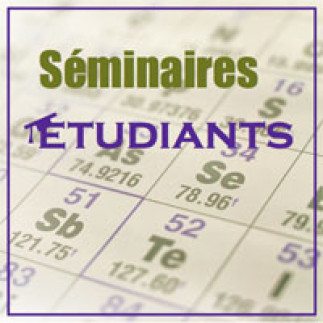Titre : Synthesis of Constrained Nucleosides for Antisense Technology.
Endroit : Pavillon Claire-McNicoll, salle Z-315 à 11 h 30.
Cette conférence sera prononcée (en anglais) par Monsieur Juan Carlos Salinas Hernandez, étudiant au doctorat, du laboratoire de Stephen Hanessian, professeur au Département de chimie de l'Université de Montréal.
Résumé : Antisense technology, in its basic form, involves binding of a short oligonucleotide sequence to a complementary messenger ribonucleic acid (mRNA), which can ultimately result in genetic disease prevention by stopping the production of pathogenic proteins. The underlying principle of this mechanism is that mRNA must remain as a single stranded entity in order to undergo translation (protein synthesis). Oligonucleotides composed of natural nucleic acids are capable of high-affinity binding recognition to complementary RNA and DNA sequences; however, they rapidly undergo intracellular digestion through the action of nucleases and are thus unsuitable for antisense-based therapeutics. Currently, there is considerable interest in the design and synthesis of nucleic acid modifications that maintain Watson-Crick base pairing properties, but demonstrate substantial increases in nuclease resistance and target (RNA/DNA) binding affinity. The main objective of my research is to develop new nucleic acid analogues that can be used as potential antisense agents and in related therapeutic applications. The targeted nucleoside systems gapmers incorporate structural modifications that based on extensive variations of antisense constructs, have proven to be effective in design and synthesis of leading second-generation nucleic acid monomers.

